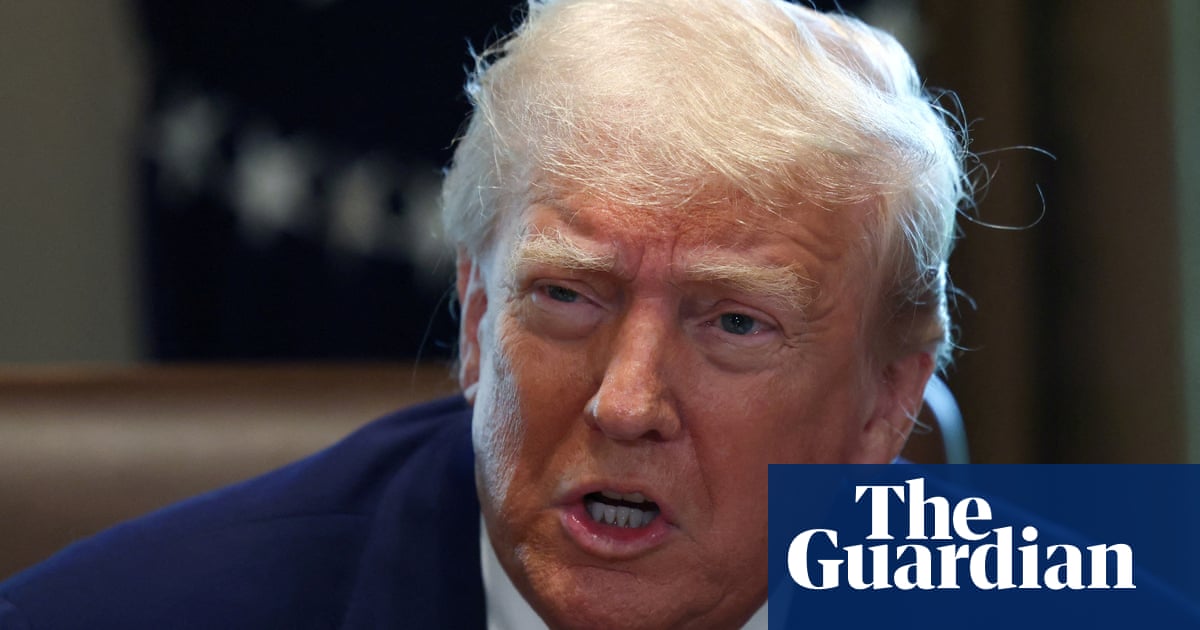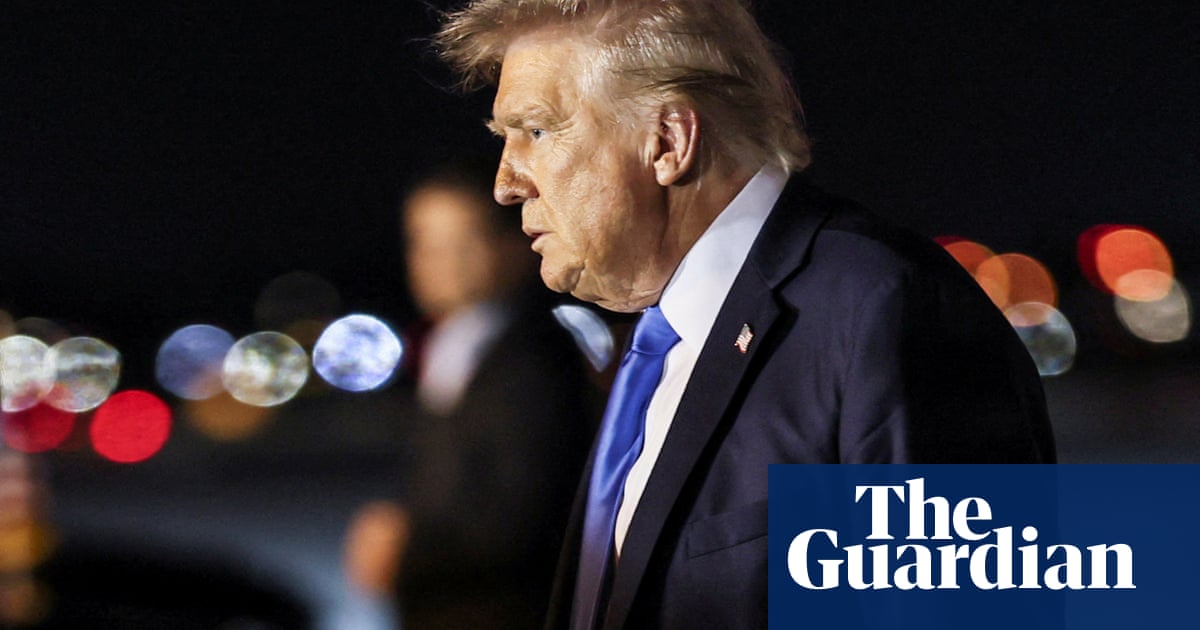Warning signs flashed this week that Donald Trump’s tariffs were beginning to destabilize what had, at the start of his term, appeared to be a solid economy. But in Congress, Republican leaders pulled out all the stops to protect his signature trade policy.
The threat appeared in the form of a Senate resolution sponsored by the Republican Rand Paul and Democrat Ron Wyden that targeted the levies and looked like it had a shot at passing a chamber in which the Republican majority had previously shown little inclination of resisting the president. But even before the first votes were cast, Trump and his allies moved to ensure it would go nowhere.
First, the White House issued a veto threat against the resolution, which would have repealed the national emergency Trump declared earlier in the month to impose sweeping 10% tariffs on imports and, briefly, even higher levies on many trading partners. Then the GOP-controlled House of Representatives enacted a rule to prevent consideration of the Senate resolution until at least the end of September.
When the resolution came up for a vote in the Senate on Wednesday, Paul, a libertarian-leaning conservative, described it as necessary to take back power Congress had ceded to the president, and pleaded with fellow Republicans to get onboard.
“The founders would not have expected the upper chamber, the Senate, to let the novel use of a statute traditionally used to sanction adversaries to become used for tariffs, to tax American people and to let it go unchallenged. This is not constitutionalism. This is cowardice,” the Kentucky lawmaker said.
While all Democrats in attendance voted for the bill, only the moderate Republicans Lisa Murkowski of Alaska and Susan Collins of Maine heeded Paul’s words, and the measure deadlocked, with 49 votes both in favor and against. Not long after, Vice-President JD Vance appeared in the Capitol to break the tie on a procedural motion that made certain the resolution was dead for good.
Trump has moved to ensure that a similar fate will befall any other attempts percolating through the Senate to undermine his tariffs. He has threatened to veto both a bipartisan bill that would set a 60-day deadline for Congress to approve new tariffs, and a resolution to block his tariffs on Canada, which made it through the chamber but has been stopped in the House.
This week’s vote took place against the release of data showing the US economy shrank in the first three months of the year, its first contraction since 2022 and a consequence, economist say, of a rush of imports prompted by unease over the new president’s trade policies.
“A major culprit is unquestionably Donald Trump and his senseless global tariffs,” Wyden said on the Senate floor. “If this continues to be our tariff policy, every major economist and forecaster is unfortunately predicting recession, job losses and the misery that was all over our news feeds this morning.”
The vote might have succeeded if the Democrat Sheldon Whitehouse and Republican Mitch McConnell, who has spoken out against tariffs, were present. But the Democratic minority leader, Chuck Schumer, told reporters on Thursday that the situation was a “win-win either way” because it presented an opportunity to get Republicans on the record supporting the levies.
“We’ve already forced them to vote on tariffs a couple of times, and we may try to do that again in the future,” Schumer said, adding he expected the policy to come up as Republicans negotiate a forthcoming bill expected to approve Trump’s tax and immigration policies while making cuts to social safety net programs.
“Republicans own it. They cared so much about tariffs, they had to bring JD Vance to come in and break the 50-49 tie, and they own it now … they’re stuck.”
Better economic news arrived on Friday, when government data showed employers hired more people than expected in April. Earlier in the week, Mike Johnson, the House speaker and ardent defender of Trump’s agenda, had acknowledged a “rocky start” to the tariff policy, but described them as a gamble that would pay off.
“Right now, even today, people are beginning to see the dust settle on that. They understand there’s a master strategy behind this, and they’re seeing the results,” Johnson said at a Tuesday press conference. “We’re going to have 100 countries – by some counts, it may be higher – renegotiate their trade policies with America, because of what President Trump did.”
Asked why he deployed parliamentary tactics to prevent the consideration of the Senate’s attempts to undo Trump’s tariffs, Johnson replied: “We’re using the rules of the House to prevent political hijinks and political stunts. And that’s what the Democrats have.”

 German (DE)
German (DE)  English (US)
English (US)  Spanish (ES)
Spanish (ES)  French (FR)
French (FR)  Hindi (IN)
Hindi (IN)  Italian (IT)
Italian (IT)  Russian (RU)
Russian (RU)  6 hours ago
6 hours ago
























Comments